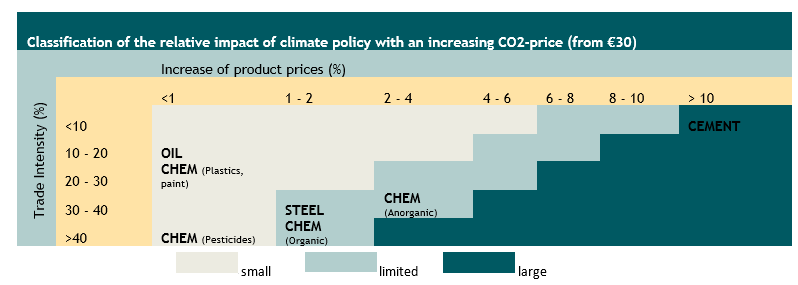- Client: Dutch Ministry of Infrastructure and the Environment (I&M)
- Implementation period: January, 2013 - December, 2013 (Completed)
- Geographic coverage: The Netherlands
- Theme: Climate Change
- Topic: Climate Agreements and Policies, Climate Co-Benefits
- Experts: Stephan Slingerland, Koen Rademaekers, Elske Veenstra, Jeroen van der Laan
What will be the impact of stringent climate policy on chemistry, oil refinery, and the steel and cement sectors?
While production in regions outside the EU is growing and energy prices and resource security are pressing issues for all industrial sectors, the potential impacts of strict climate policy differ considerably between the four sectors in this study: chemistry, steel, cement and oil refinery. This study analyses the impact of climate policy on each of these sectors, and how this would affect the Dutch economy. The study draws conclusions on the impact of climate policies on the competitiveness position of these sectors in the Netherlands.

Key findings of the research can be summarized as follows:
- Chemistry is the most important sector for the Dutch economy in terms of employment and added value, followed by oil refinery and the steel sector. The contribution of the cement sector to the Dutch economy is by far the smallest.
- The consequences of strict climate policies could be the largest for cement. Strict climate policies on the other hand seem to play a relatively small role for refinery and specialty chemicals. Steel and basic chemistry would be affected, but the consequences are seen to be limited.
- The four sectors in the Netherlands have some strategic advantages compared to competitors within Europe. Chemistry and oil refinery are strategically positioned and make use of highly integrated clusters. Cement makes use of a production process that is less energy- and CO2-intensive and steel is actively involved to improve efficiency. Strict climate policy could become an extra burden to these industries, but it could also function as an additional motive to improve the competitiveness of the industry on the longer term.